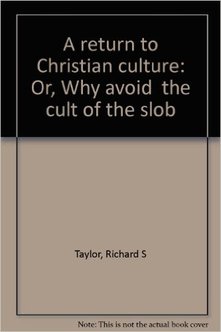 Really, folks, I don’t spent every waking minute reading blogs and immersing myself in the wonderful world of podcasts. I do have to remind myself, though, just as I used to remind myself about my book-reading habits, that sometimes taking in all this material from other people means that I’m not participating as fully as I might in my own life. That being said, I’ve greatly enjoyed getting into this whole new way to access a very old type of information, that of the spoken word. Instead of my just having the radio on to Colorado Public Radio and being forced to listen to whatever they’re droning on about, I get to choose my material to keep me company while I’m walking or cooking or cleaning.
Really, folks, I don’t spent every waking minute reading blogs and immersing myself in the wonderful world of podcasts. I do have to remind myself, though, just as I used to remind myself about my book-reading habits, that sometimes taking in all this material from other people means that I’m not participating as fully as I might in my own life. That being said, I’ve greatly enjoyed getting into this whole new way to access a very old type of information, that of the spoken word. Instead of my just having the radio on to Colorado Public Radio and being forced to listen to whatever they’re droning on about, I get to choose my material to keep me company while I’m walking or cooking or cleaning.
popular culture
Food Fads Debunked
The Gluten Lie and  Other Myths about What You Eat by Alan Levinovitz, Ph.D., originally published in 2015 by Regan Arts, now available in a variety of formats. (Book image and title are both affiliate links; if you click through to the Amazon page and buy the book there I will earn a small commission at no additional cost to you.)
Other Myths about What You Eat by Alan Levinovitz, Ph.D., originally published in 2015 by Regan Arts, now available in a variety of formats. (Book image and title are both affiliate links; if you click through to the Amazon page and buy the book there I will earn a small commission at no additional cost to you.)
I first became aware of this book because its author was featured on the Freakonomics Radio podcast, to which you should subscribe and faithfully listen. (And then you should read the Freakonomics book, Freakonomics [Revised and Expanded]: A Rogue Economist Explores the Hidden Side of Everything.
Anyway, the author of this book, Alan Levinovitz, was interviewed not too long ago on the show, and since I’m a total fan of any author who wants to punch a hole in our society’s various food fads and manias, I made sure to get hold of his book.
Anxiety Equals Adrenaline
 Once again I’m mining the ideas of a podcast for my own posts, and today the nugget of wisdom, this one about anxiety, is from “Happier in Hollywood,” hosted by Liz Craft (who’s also on the “Happier” podcast) and her writing partner Sarah Fain. They are often prone to anxiety as they navigate the roller coaster of being TV writers living in LA. No one has a permanent job within a TV series, because no series is permanent. Let’s see—how long did “Monk” last? Seven years? Something like that. Most are much, much shorter. So you’re constantly having to prove yourself.
Once again I’m mining the ideas of a podcast for my own posts, and today the nugget of wisdom, this one about anxiety, is from “Happier in Hollywood,” hosted by Liz Craft (who’s also on the “Happier” podcast) and her writing partner Sarah Fain. They are often prone to anxiety as they navigate the roller coaster of being TV writers living in LA. No one has a permanent job within a TV series, because no series is permanent. Let’s see—how long did “Monk” last? Seven years? Something like that. Most are much, much shorter. So you’re constantly having to prove yourself.
Does the Present Moment Really Exist?
 I’m always hearing snatches on the radio that intrigue me; sometimes I even follow up on them. One of my favorite sources for these snatches is “The TED Radio Hour” on NPR. As you may know, and as I’ve written before, TED Talks are a great source of short talks on a wide range of subjects. “TED” stands for “Technology, Entertainment, Design,” but you can shoehorn almost any topic into those three areas.
I’m always hearing snatches on the radio that intrigue me; sometimes I even follow up on them. One of my favorite sources for these snatches is “The TED Radio Hour” on NPR. As you may know, and as I’ve written before, TED Talks are a great source of short talks on a wide range of subjects. “TED” stands for “Technology, Entertainment, Design,” but you can shoehorn almost any topic into those three areas.
Enter into This Book’s Own Little World.
 Do you ever finish a book with a feeling of regret because now you have to leave its world? That’s certainly happened to me many times, and my son said once when he was younger that he wished he wasn’t such a fast reader, since he sometimes didn’t want a book to end. Yesterday, because of a memory brought to mind of a phrase from a 1960’s detective novel, I loaded up the audiobook version of A Clutch of Constables by the New Zealand mystery author Ngaio Marsh. I had returned a couple of audiobooks to Audible.com that I knew in my heart of hearts I was never going to finish and so had some credits to spend. Constables wasn’t available as a download through the library, so I went ahead and spent a credit.
Do you ever finish a book with a feeling of regret because now you have to leave its world? That’s certainly happened to me many times, and my son said once when he was younger that he wished he wasn’t such a fast reader, since he sometimes didn’t want a book to end. Yesterday, because of a memory brought to mind of a phrase from a 1960’s detective novel, I loaded up the audiobook version of A Clutch of Constables by the New Zealand mystery author Ngaio Marsh. I had returned a couple of audiobooks to Audible.com that I knew in my heart of hearts I was never going to finish and so had some credits to spend. Constables wasn’t available as a download through the library, so I went ahead and spent a credit.
Further Beanie Baby Thoughts
 Well, once again I didn’t post an update on Monday as promised. So shoot me! We are moving along, though, and the electrician will make his second appearance for the week today, at which time the kitchen will have its lighting. So I’ll post a picture of that. Our dear family is being v-e-r-y tolerant of the mess. We’re in a trough right now where we can’t go ahead and finish unloading the furniture for the main living space because of the aforementioned carpet problem. Friday is the deadline for getting everything out of the pods; otherwise we’ll have to pay for an extra month.
Well, once again I didn’t post an update on Monday as promised. So shoot me! We are moving along, though, and the electrician will make his second appearance for the week today, at which time the kitchen will have its lighting. So I’ll post a picture of that. Our dear family is being v-e-r-y tolerant of the mess. We’re in a trough right now where we can’t go ahead and finish unloading the furniture for the main living space because of the aforementioned carpet problem. Friday is the deadline for getting everything out of the pods; otherwise we’ll have to pay for an extra month.
A Glimpse into the Past

Foyle’s War: The Home Front Files, British TV series 2002-2015. Available on Netflix and Amazon and numerous other outlets. Good source for info: www.imdb.com/title/tt0310455/.
Well, last week I didn’t post about a book or a podcast or a movie, and this week I could talk about Beauty and the Beast, which I asked for as part of my birthday weekend and which we saw last night. (This trend of selling assigned movie seats is becoming quite a pain. Also, they’re pulling out the regular seats and putting in recliners, so there are fewer seats overall, but then I guess they’ve upped the prices. We always try to buy the discount tickets at King Soopers, but you can’t use them to book seats online. When we got there we were told there were three tickets left for the showing we wanted but they weren’t together and two of them were pretty close.
We Need This Book More Than Ever!

A Return to Modesty: Discovering the Lost Virtue by Wendy Shalit, originally published in hardcover by Free Press, 1999, now available in Kindle and paperback. (Link is for Amazon Affiliate.)
One of the awful results of this awful election is that so much vulgarity has been normalized in the media, even before the release of the “Access Hollywood” tapes. It has been interesting, and horrifying, to watch as the already-low level of public discourse has been dragged even lower.
So it’s great to know that this book, which I read back when it first came out, is back in a 15th-anniversary edition with a new preface by the author. I plan to re-read it but wanted to go ahead and write a post about it now.
A Much-Needed Call for Civility and Culture
 A Return to Christian Culture: or, Why Avoid “the Cult of the Slob” by Richard S. Taylor, originally published in 1973, now available in several formats through Amazon and other outlets. Most books I review are available at the public library , and that is always my first choice. I’ve just done some looking, though, and this one is not available through my library system or through its second-tier search capabilities. So I’d recommend your purchasing it, and, if you’d be so kind, to do so by clicking on the Amazon link above. You will then be taken to my “store” page and given the opportunity to purchase the book through my site. Those Amazon links are so-called “affiliate links,” and I get a small commission at no cost to you if you use them. You can get the Kindle edition for only $2.99 and a paperback for as little as around $2. The subtitle is different in some of the editions; I don’t know why they thought “a sagging society” was a better word picture than “cult of the slob.” I believe that this little book should be on every Christian’s bookshelf and be re-read periodically. What would Dr. Taylor think of American society now, ten years after his death? If he weren’t such a gentleman, his words would probably be, “I told you so!”
A Return to Christian Culture: or, Why Avoid “the Cult of the Slob” by Richard S. Taylor, originally published in 1973, now available in several formats through Amazon and other outlets. Most books I review are available at the public library , and that is always my first choice. I’ve just done some looking, though, and this one is not available through my library system or through its second-tier search capabilities. So I’d recommend your purchasing it, and, if you’d be so kind, to do so by clicking on the Amazon link above. You will then be taken to my “store” page and given the opportunity to purchase the book through my site. Those Amazon links are so-called “affiliate links,” and I get a small commission at no cost to you if you use them. You can get the Kindle edition for only $2.99 and a paperback for as little as around $2. The subtitle is different in some of the editions; I don’t know why they thought “a sagging society” was a better word picture than “cult of the slob.” I believe that this little book should be on every Christian’s bookshelf and be re-read periodically. What would Dr. Taylor think of American society now, ten years after his death? If he weren’t such a gentleman, his words would probably be, “I told you so!”
If I didn’t know the date of publication I’d think this book was written yesterday. In fact, the excesses in every area of life that he addresses are writ large today. I want to delve into three of them in some detail, hoping that you’ll want to read the whole book. And I will point out that, unlike some of the books I write about, this one is very short, less than 100 pages.
I’ll start with an idea sadly lacking in our increasingly divisive and divided society: tolerance and respect, indeed enjoyment, of people who are different from us. I’m going to quote at some length here and will then have to restrain myself from using very many of Taylor’s words in the other sections, as I don’t want to exceed my “fair use” limit:
It should not be supposed, however, that one’s enjoyment of this world must be confined to the beauties of nature and invention. The true Christian shares with God His love for men also. And in this love there is some degree of simple, unembarrassed liking for people as people. This wonder and excitement in people transcends their moral worthiness or spiritual condition. We should know how to enjoy people simply because all of us share in a common humanity. This does not imply indifference to the evil of men, or a complacency with people as they are. We will love them as God loves them, first as the created image of Himself, and second as the subject of His redemptive sufferings. This will make our love costly, and blend enjoyment with tears and delight with grief–sometimes anger. But too often we have had the anger for the sinner and reserved the enjoyment for the saint. In a sense this is natural and inevitable, for the saint is our spiritual kin while between us and the sinner is a gulf of spiritual alienation. We hesitate to bridge the gulf because the same gulf exists between him and God and we choose to be on God’s side. But in taking God’s side it is easy to call down fire from heaven on wicked men, and thus fail to be like God, who makes the sun shine and the rain fall on them all. (p. 65 of the 1975 paperback edition)
Isn’t that a great passage? Would that it were drilled into every heart. I am so weary of hearing one group bash another, especially during this election year, with seemingly no recognition that we are all human beings created by God, that we all have worth in His eyes, that only by showing love for each other can we ever, as Christians, win others to Christ.
Okay, second idea: that enjoyment of legitimate earthly pleasures can be a way to showcase our faith, that we aren’t glorifying God by going around in rags. The Bible does not teach austerity for its own sake. This idea resonates with me quite a bit, as I always feel a little torn about spending money on items that are just for show. After all, we don’t have to have curtains on the windows; we could just tape up garbage bags. We don’t have to have pictures on the walls or matching plates on the table. Taylor tells a story about Brother Andrew, the man who spent many years of his life smuggling Bibles into closed countries. He and his wife felt that they couldn’t spend any money on themselves and for years dressed themselves out of the so-called “missionary barrels.” Finally their eyes were opened by the words of a donor, who said, “God will send you what your family needs and what your work needs too. You are a mature Christian, Brother Andrew. Act like one.” Brother Andrew was indeed a mature Christian, so much so that he could accept this criticism: “Suddenly I saw that this was part of a whole pattern of poverty into which we had fallen, a dark, brooding, pinched attitude that hardly went with the Christ of the open heart that we were preaching to others.” (Taylor is quoting from the book God’s Smuggler here, another book I would highly recommend. This book and the Anne Ortlund one mentioned below are also linked to my affiliate page but are available at the library.) Obviously there is a balance; we aren’t called to be extravagant. But we don’t have to look like, as my mother used to say, “the ragpicker’s children.” (What is a ragpicker? I’m not sure.) There is a balance to be found, and we are called to more or less deprivation in our lives. Taylor mentions Charles Wesley, who felt drawn to a life of poverty but who was able to do so because he could be housed by prosperous Methodists.
Third idea: that good taste obeys certain principles and that we shouldn’t “settle for junk.” Taylor tells the story of how he and his wife bought an old house and carefully furnished and decorated it. They were not spending money unnecessarily and not trying to impress others but were instead, and I hope this isn’t too grandiose of a term, honoring the house’s “homeyness and dignity.” Taylor tells a funny story about having his devotions one morning and realizing during his prayer time that a chair needed to be moved to another area of the room. So he did a little rearranging, and when his wife came down and saw the change she said, “Of course! Why didn’t we see that before!” They were discovering what worked in their lovely old house. And I would say here that one of the nicest homes I’ve ever visited was furnished pretty much entirely from garage sales. It’s not a matter of money per se but of taste.
I will close with a quotation from another wonderful and short book, Disciplines of the Beautiful Woman by Anne Ortlund: “Look quality, think quality, talk quality.”
Can “Serial” Add to Your Happiness?

Just in case you don’t know what “Serial” is:
In 1999 an 18-year-old Baltimore girl named Hae Min Lee was murdered and her body found in a park not far from her high school. Her ex-boyfriend, a Pakistani Muslim named Adnan Syed, was arrested and charged with the murder; no other suspect was ever considered. The first trial ended in a mistrial; the second trial ended in a guilty verdict and Syed has been incarcerated in a supermax prison ever since. A family friend and lawyer tried to get attention paid to the poor job done by the defense and the many inconsistencies in witness testimony, but she was unsuccessful in her efforts until she decided to try bringing the story to the media in some way. She contacted a journalist named Sarah Koenig who became interested and ended up doing a 12-part podcast on the case, titled “Serial.” This series exploded in popularity, with 68 million downloads on iTunes alone.